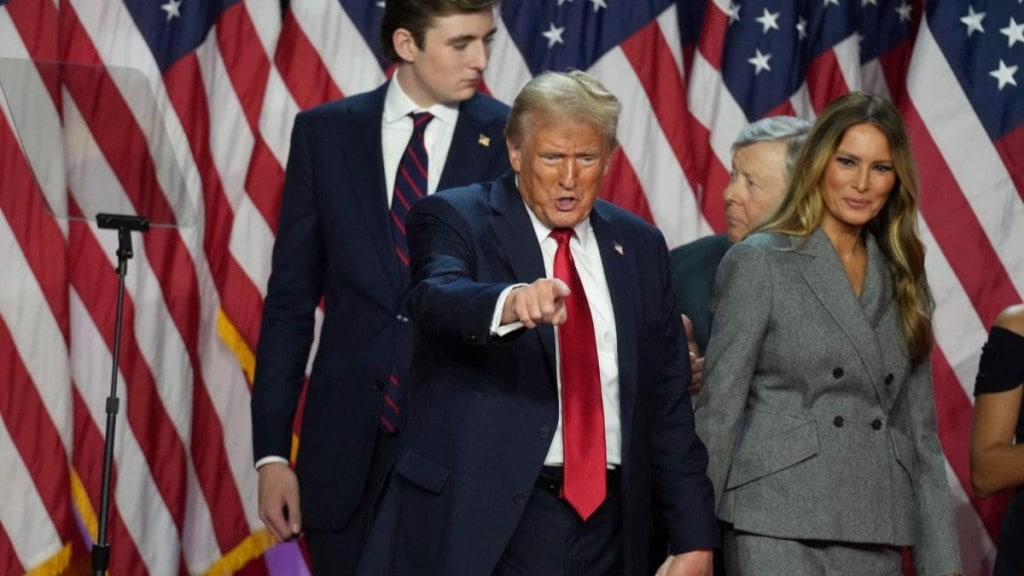Donald Trump’s election as the 47th President of the United States marks a significant moment for India. With the Republicans holding a majority in the Senate and leading in the House of Representatives, Trump will now have a stronger position to push through his policies. For India, this shift in US leadership represents an opportunity to reinforce the bilateral relationship, even if the path ahead is not without challenges.
Strengthening the India-US Strategic Partnership
As Lt Gen P R Shankar (R) former Director General Artillery, Indian Army and currently Professor, Aerospace Department, IIT Madras observes, one of the most important outcomes of Trump’s victory for India is the potential for a stronger, more predictable relationship between the two nations. In recent years, India-US relations have faced certain strains, particularly under the Democratic administration. However, Trump’s return to power offers an opportunity to stabilize and deepen this partnership.
Gen Shankar notes that Trump’s personal rapport with Prime Minister Modi will play a crucial role in strengthening this relationship. “The personal equation between Trump and Modi will likely smooth over any potential bumps and foster closer cooperation,” he explains. This personal bond can help overcome the complexities that sometimes arise in trade and defence negotiations, offering India a clear and familiar trajectory for its engagement with the US.
Trump’s known policy positions and his approach to global diplomacy make it easier for India to understand what to expect from his administration. According to Gen Shankar, while there will be challenges, especially in trade and immigration, the overall strategic trajectory of the US-India relationship will continue to move forward. “We can expect continued cooperation, especially in defence, where India’s interests align closely with those of the US,” he says.
Trump’s Stance on China: A Strategic Opportunity for India
A critical area where Trump’s policies align with India’s national interests is in the ongoing US-China rivalry. Trump has been vocal about his stance on China, considering it a significant adversary to the US. This continuing tension between the US and China is expected to work in India’s favour. Gen Shankar points out that the first term of the Trump administration saw the establishment and strengthening of the Quad (US, India, Japan, and Australia), an initiative that has been crucial in balancing China’s growing influence in the Indo-Pacific region.
“Under Trump’s leadership, the US-India defence relationship will remain a cornerstone of the bilateral partnership,” Gen Shankar asserts. With both nations facing similar security challenges from China, cooperation in defence, joint military exercises, and security collaborations will only deepen. This will not only benefit India’s defence capabilities but also strengthen its position in the Indo-Pacific, a region of strategic importance.
Opportunities for India as a Global Mediator
Trump’s foreign policy focus will also present India with an opportunity to play a larger role as a global mediator, especially in ongoing conflicts like the Russia-Ukraine war and tensions in the Middle East. Gen Shankar suggests that India’s neutral stance and strong diplomatic ties with both the West and Russia place it in an ideal position to act as a mediator. “Trump’s commitment to ending wars rather than starting them opens up a space for India to step in as a peace broker,” he says.
India’s involvement in facilitating peace talks could bolster its global stature and influence, particularly as it seeks to stabilize its own neighbourhood in South Asia.
Challenges on the Horizon: Trade and Immigration
Despite the positives, Gen Shankar acknowledges that there will be challenges for India under Trump’s second term. One major area of concern is Trump’s immigration policy. Known for his tough stance on immigration, Trump may impose stricter visa regulations, which could impact Indian students and professionals who look to the U.S. for opportunities. “This will likely cause some problems for Indian students and workers seeking to go to the US,” he warns.
Additionally, Trump’s protectionist trade policies, which include the imposition of tariffs on countries like India, could create friction. India will need to navigate these trade issues carefully to ensure its economic interests are not compromised while maintaining the broader strength of the US-India relationship.
The Psychological Impact of Indian Connections
An interesting development in Trump’s second term is the continued influence of Indian-origin figures within the US government. The wife of the vice president-elect, JD Vance, is of Indian descent. While Gen Shankar notes that this connection may not result in any significant policy shifts, “the psychological impact cannot be ignored,” he says. Having an Indian-origin individual in such a prominent position could add goodwill to the relationship, fostering positive sentiment and reinforcing India-US ties.
In conclusion, while Trump’s victory presents a mixed bag of opportunities and challenges for India, the overall outlook is positive. As Gen Shankar aptly points out, a Republican president has historically been favourable for India, and this trend is likely to continue. From strengthening defence ties and countering China’s influence to playing a more active diplomatic role globally, India stands to gain significantly under Trump’s leadership. However, India will need to remain cautious in handling trade and immigration issues to ensure the bilateral relationship continues to thrive.

